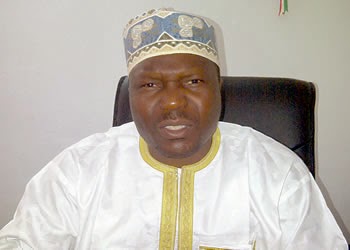The president of the Trade Union Congress, Bobboi Kaigama,
has recommended death penalty for any government official found guilty
of stealing N1 million and above from public treasury.
Kaigama, who is also the president of the Association of
Senior Civil Servants of Nigeria (ASCSN), made the recommendation during the
fourth edition of the Distinguished Guest Lecture series of the Faculty of
Environmental Design and Management, Obafemi Awolowo University, Ile Ife, where
he was the guest lecturer on Wednesday.
Speaking on the theme, "Corruption and the challenges
of Nation Building", the labour leader also advocated stiff legal
penalties and life ban from political office for persons found guilty of
corrupt charges, saying that plea bargaining shouldn't be allowed in any
corruption matter.
He charged Nigerians to play effective roles in weeding out
criminal and corrupt elements from the nation’s public life.
Expressing worry about the extent of retardation corruption
has caused Nigeria in development, he said "It's sad thing to note that
more than five decades of attaining independence, Nigeria is still not out of
the woods".
Kaigama also quoted the report of the German-based
Transparency International in which Nigeria was ranked among the most corrupt
nations in the world to butress his points.
"In the group's Corruption Perceptions index 2013,
Nigeria ranked 144th, out of 177 nations in the world, scoring 25 points out of
a possible 100 points. This year, Nigeria shared the podium of infamy with
crisis-torn Central African Republic and her neighbour, Cameroon, according to
Vanguard newspaper of December 4, 2013.
He said that corruption pervades most establishments in
Nigeria, adding that the situation was made worse by politicians because of the
quest for power.
He revealed that US$400billion was stolen in the country
between 1960 and 2008.
Citing examples of corruption cases like that of the former
Inspector General of Police, Tafa Balogun and Cecilia ibru, he said that
"you're no doubt aware that the Minister of Petroleum Resources, Diezani
Alison-Madueke confessed to spending N3.5billion on kerosene subsidy without
appropriation. What about the missing $20billion from the NNPC account
according to Lamido Sanusi, the suspended Central Bank Governor?"
He identified erosion of societal values, culture of
impunity, collapse of religious values, bad precedence, lack of independent
judiciary, power politics, government politics, poor remuneration of workers,
poverty and unemployment as causes of corruption, noting that the menace has
rendered every strata of the society useless.
"The two anti-graft bodies-EFCC and ICPC-should be
strenghtened. For instance, they should be statutorily empowered to arrest and
prosecute culprits without any recourse to any other authority. It would also
serve the nation well to have a law which not only provides for every public
office holder to declare his assets on assuming office, but also stipulates
that he must repeat the exercise each subsequent year that he is in office and
not later than one month after vacating the office. All such declarations
should be in 3 national daily newspapers and not just the Code of Conduct
Bureau," he said.
The university’s Vice-Chancellor, Professor Bamitale Omole, in
his address, noted that every developed country of the world had experienced
the pang of corruption at their different stages of development, adding it
formed the foundation for quiet changes in the European countries.
Omole, who was represented by the Deputy Vice-Chancellor
(Administration), Professor Omolayo Ajayi, said that European countries are not
entirely free of corruption still "but evidence abound that there are strong
collective and mitigating efforts propelled by leaderships of these nations. As
we know, ordinary tax evaders incur very long jail terms in these climes".
The Dean of the Faculty, Professor Tajudeen Aluko, while
welcoming the guests, said the lecture was very relevant and central to the
efforts at emancipating Nigeria from the shackles of underdevelopment and bad
governance.
He said that corruption depletes the nation's wealth,
increases costs of goods and services and funnels nation's resources to
uneconomic high profile projects at the expense of what is really needed by the
people.


0 comments:
Post a Comment